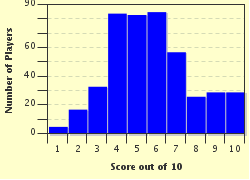Quiz Answer Key and Fun Facts
1. What is the name of the glowing sheets and waves that appear in the skies of the Northern Hemisphere?
2. The Grand Canyon is situated in the US State of Arizona. Do you know how long the Grand Canyon is?
3. Situated in Michoacan, Mexico, do you know what "Paricutin" is?
4. What two countries in Africa share the Victoria Falls?
5. Mt Everest, the highest spot in the world, is situated between Nepal and Tibet. Do you know the Tibetan name for Mt Everest?
6. The Great Barrier Reef is situated off the coast of Australia. Do you know exactly where it is situated?
7. The Harbour of Rio de Janeiro, Brazil. Do you know the name of the famous mountain with the statue of "Christ the Redeemer" on the top that overlooks the harbor?
8. Uluru (Ayers Rock), Australia, was not listed as one of the Seven Natural Wonders in some lists, but was included in others. Do you know what kind of rock formed Uluru?
9. The Matterhorn, was also on a secondary list. Do you know which mountain chain contains The Matterhorn?
10. This last Natural Wonder is Meteor Crater. Do you know which US State contains this giant crater?
Source: Author
wenray
This quiz was reviewed by FunTrivia editor
Tizzabelle before going online.
Any errors found in FunTrivia content are routinely corrected through our feedback system.

